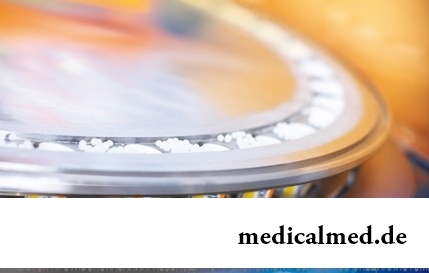





Polyvinyl alcohol
Polyvinyl alcohol – artificial water synthetic thermoplastic polymer. Synthesis 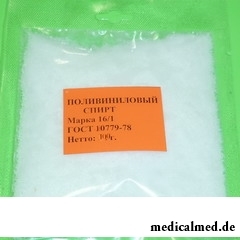 of polyvinyl alcohol is exchange reaction of alkaline hydrolysis or alcoholysis.
of polyvinyl alcohol is exchange reaction of alkaline hydrolysis or alcoholysis.
The German chemists Willie Hermann and Volfram Gonel in 1924 were pioneers of polyvinyl alcohol.
Unlike many vinyl polymers receiving polyvinyl alcohol does not happen by polymerization of the corresponding monomers. Monomer of polyvinyl alcohol exists only in the form of a tautomeric form steady acetic aldehyde. Receiving polyvinyl alcohol happens by partial or full hydrolysis of polyvinyl acetate to remove etilatsetatovy groups.
Industrial ways of receiving polyvinyl alcohol are various options of saponification of polyvinyl alcohol in the water or spirit environment in the presence of acids and the bases.
In 2002 under the leadership of Kuznetsov A. A. the laboratory of the ISPM heat-resistant thermolayers of Enikolopov in Moscow developed the gel-free way of receiving polyvinyl alcohol having a number of advantages in comparison with other ways, such as low cost, high efficiency and short-term synthesis.
Properties of polyvinyl alcohol
The film-forming, emulsifying and sticking together properties of polyvinyl alcohol allow to use it in various industries and spheres. Polyvinyl alcohol is steady against influence of oils, fats and solvents. It has no smell and is non-toxical, has high durability on stretching and flexibility, and also has the high content of oxygen.
However, these properties of polyvinyl alcohol are in direct dependence on humidity at which increase it absorbs water. Water which works as the plasticizer reduces durability of polyvinyl alcohol. It completely breaks up and is quickly dissolved in it.
Molecular formula of polyvinyl alcohol – C2H4Ox, density – from 1,19 to 1,31 g/cm ³, melting temperature – 200 °C, boiling temperature – 228 °C.
Use of polyvinyl alcohol
Polyvinyl alcohol is raw materials for production of other polymers, such as:
- Polyvinyl nitrate is an ether from nitric acid and polyvinyl alcohol;
- Polyvinyl acetal – it is received by interaction of aldehydes with polyvinyl alcohol.
Use of polyvinyl alcohol as a thickener and the modifier in polyvinyl acetate glues is also known.
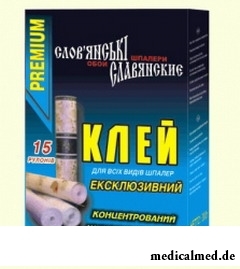 Use of polyvinyl alcohol as the stabilizer of emulsion polymerization and protective colloid for production of polyvinyl acetate dispersions is widely widespread in China.
Use of polyvinyl alcohol as the stabilizer of emulsion polymerization and protective colloid for production of polyvinyl acetate dispersions is widely widespread in China.
In the textile industry of Japan and North Korea use of polyvinyl alcohol is widely widespread in production of fiber.
Polyvinyl alcohol found application in various industries and spheres in quality:
- Paper covering for liners;
- Water-soluble film for packaging of laundry detergent in the dissolved tablets;
- Barrier layer for carbon dioxide in polietilentereftalatovy bottles;
- Lubricants in eye drops and firm contact lenses;
- Fibers for fittings in concrete;
- Surfactant for formation of polymer of the encapsulated nanoparticles;
- The fixer for collecting samples;
- The agent of embolization in medical procedures;
- Thickener and adhesive material for production of shampoos and latex;
- Emulsifier in the food industry;
- The embolizing agent at nonsurgical treatment of oncological diseases.
Except people, only one living being on the planet Earth – dogs suffers from prostatitis. Here really our most loyal friends.

Each person supports all life a SARS about 200 times. The peak of incidence falls on cold season, but to get sick from temperatures...
Section: Articles about health
The brain of the person is studied not one hundred years, but the quantity of the riddles connected with this body increases rather, than decreases. Perhaps, numerous delusions concerning a structure and functioning of a brain, many are explained by it from...
Section: Articles about health
For many spouses the question of planning of a family is one of the main. The problem of the choice of effective and safe contraceptives at the same time comes out on top. Russians still not often resort to operation of a vasectomy extremely popular in the USA, and also in some European and Asian countries. The reason is simple: most of men simply do not possess the complete information about specifics and effects of this procedure. Let's try to meet this lack and to acquaint readers about those...
Section: Articles about health
The immunity role in growth of the child is invaluable. The proteins-immunoglobulins produced by immune system preserve the child against diseases...
Section: Articles about health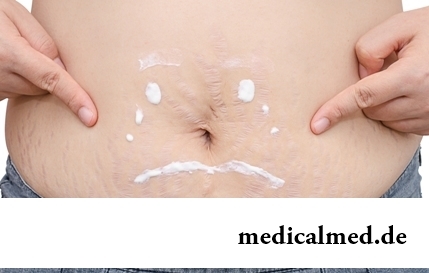
Striya (extension) are the defects of skin having an appearance of direct or wavy strips from 1 to 10 cm long and 1-5 mm wide. In most cases at women of a striya are located on a stomach, hips, a breast or buttocks. At athletes they can appear on shoulders and внутренн...
Section: Articles about health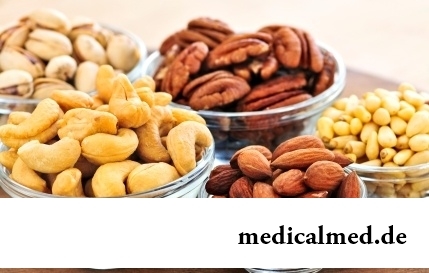
When overcomes feeling of hunger, and an opportunity to have dinner fully is absent, having a snack − the meals, small on volume, stabilizing sugar level in blood comes to the rescue. The relation of nutritionists to having a snack more often negative, but only because as snack people choose the most caloric products with the increased amount of "bystry" carbohydrates: cookies, rolls, chips, candies. Nevertheless, the advantage of having a snack is obvious to weight loss: the person avoids strong feeling of hunger...
Section: Articles about health
Scientists always aimed to offer fundamental explanations for medical problems. Their theories formed the basis of modern methods is treated...
Section: Articles about health
The metabolism at each person proceeds in own way. However between the speed of this process and disposal of excess weight after all all have a dependence. Unfortunately, the people inclined to try on itself numerous "miracle" diets, not always at...
Section: Articles about health
An eye of the person daily experiences considerable strain. The problem of preservation of sight is for many years directly connected with a question of supply of tissues of eye enough oxygen and nutrients. This task is carried out by small vessels – capillaries. For normal functioning of the visual device extremely important that they kept the integrity, but it works well not always. Microtraumas of eye vessels during which there are small hemorrhages it is extraordinary расп...
Section: Articles about health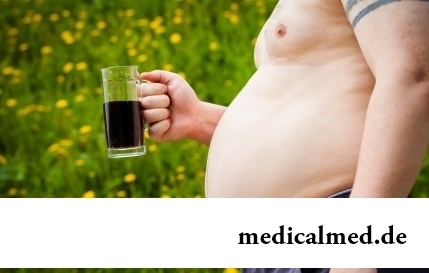
There is a lot of fans of beer in our country. Statistically, on each average Russian (including women and children) in...
Section: Articles about health
Weakness of an ankle joint – very widespread problem. Its existence is demonstrated by tendency to a podvorachivaniye of legs when walking on heels, frequent painful sprains, pain on average and anonymous toes even after small nagruzo...
Section: Articles about health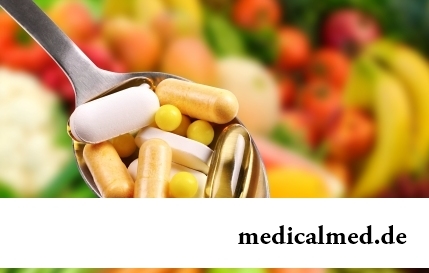
The medicine promptly develops, and the fact that else quite recently it seemed by miracle can now. We are not surprised any more to the fact that people with artificial joints and extremities can play sports, organ transplantation became a routine, and the latest cancer medicine allowed to achieve reduction of mortality in tens of times. Miracles of plastic surgery thanks to which people in 60 years are in the flower of beauty and freshness, too not a sensation any more....
Section: Articles about health
Heart disease and blood vessels lead to disturbance of blood supply of bodies and fabrics that involves failures in their works...
Section: Articles about health
One of the major chemical processes happening in a human body are oxidation reactions. They go with participation of fats and carbohydrates which we receive from food, and the oxygen getting to us from air. A main goal of such reactions is it is received...
Section: Articles about health
Maternal milk is the best food for the newborn. It is the unique natural product containing an optimum set of nutrients, and which is best adapted in order that the baby normally developed and it was protected from harmful factors of external environment, unusual for it. Unfortunately, breastfeeding process not always does without complications. Sometimes, that the kid begins to bite a breast, giving to mother an essential inconvenience. Some women...
Section: Articles about health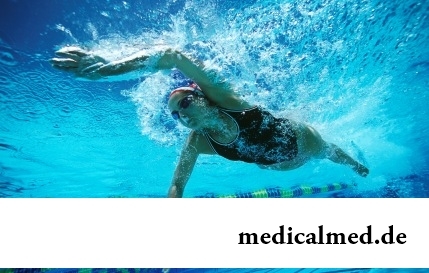
The state of health of the person depends on many factors. One of the most important is the constant but which is not exhausting, motive...
Section: Articles about health
Musicotherapy – a treatment method which caused and causes a set of a controversy concerning its efficiency. However the facts are relentless: during the numerous researches curative impact of music on an organism was scientifically confirmed. Since then in a number of the countries a method...
Section: Articles about health
Women quite often suffer from complexes concerning the sizes of the bust. Strangely enough, not too modest, and excessively curvy shapes become the reason of sincere discomfort sometimes. Except psychological problems, the big bust sometimes creates also quite notable malfunctions with health: his owner can feel muscular dorsodynias, feeling of constant fatigue and difficulty of breath. Over time excess loading leads to development of diseases позвоночн...
Section: Articles about health
The naturopathy sometimes moves as the new direction of medicine, something like fashionable hobby, and there is nothing farther from the truth....
Section: Articles about health
Nightmares belong to the most unpleasant frustration. Statistically, they happen at 4% of adults, and almost at 70% of children and teenagers. During a nightmare of people dreams himself in extremely difficult, life-threatening situation. It wakens suddenly, in...
Section: Articles about health
Season of activity of viral infections in the heat. Everyone can get sick, but probability of this unpleasant event it is possible and it is necessary to minimize. There is a number of rules, following to which will help or to avoid absolutely infection with flu or a SARS, or to have an illness benign and without essential complications. About ways of prevention of seasonal infections the speech in this article will also go....
Section: Articles about health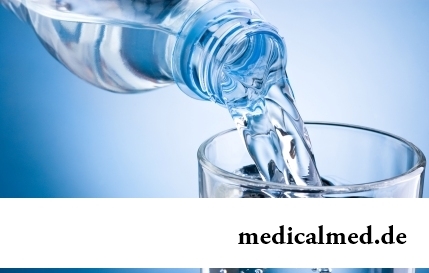
It would seem, about it there can be no disagreements: water is necessary for a human body for normal zhiznedeyatet...
Section: Articles about health
History of use of an anesthesia during operations contains more than 160 years. Annually in the world hundreds of thousands of surgical interventions during which to patients the substances immersing them in a dream and saving from pain are entered are carried out. Using an anesthesia to these...
Section: Articles about health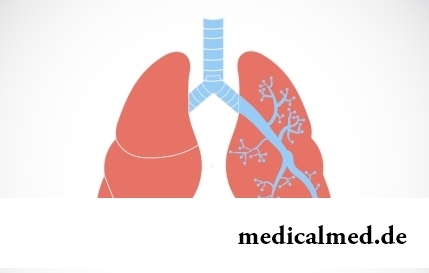
They say that to ensure health and longevity of people it is obliged. Really, at competent approach to these questions, minimization of an adverse effect of many factors does not represent a special problem. Practically everyone has an opportunity to play sports, to pick up an optimum operating mode and rest, to adjust healthy food, to refuse addictions. It is more difficult to exclude hit in an organism of harmful substances through a respiratory organs: not all are able to afford to live in the area with хо...
Section: Articles about health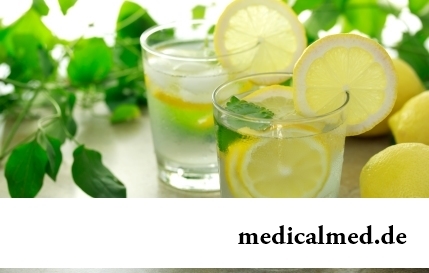
Water with a lemon - idle time in preparation drink which supporters of a healthy lifestyle already managed to appreciate. Upo...
Section: Articles about health
Feeding by a breast - the integral part of ideal motherhood allowing to come into contact with the kid and to create to it healthy immunity since early years. Nevertheless, this important process in life of mother and child can be saddened laktostazy − by a delay of milts...
Section: Articles about health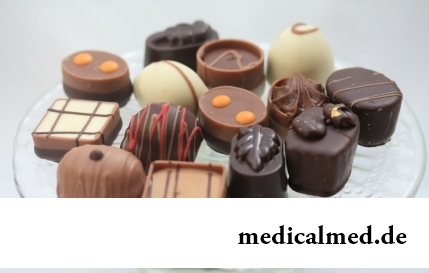
Urogenital candidiasis (milkwoman) – a fungal infection which annoys unpleasant feelings in the field of generative organs, being followed by white curdled allocations, an itch, discomfort during an urination, pain. She is called by Candida fungus – the opportunistic organism living on mucous membranes of an organism....
Section: Articles about health
